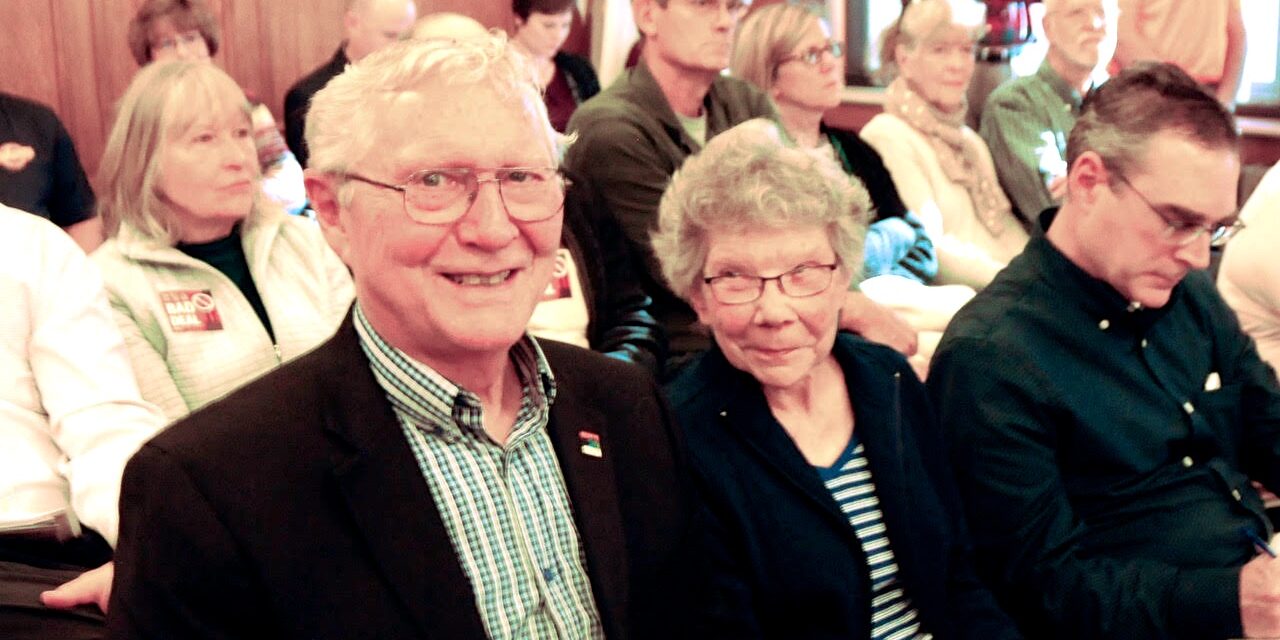Duluth speaks: Clean Energy, not Gas Plant
The chambers at Duluth City Hall was packed and the heat was on as the Minnesota Public Utilities Commission (PUC) listened to testimony related to the MN Power and Dairyland Power Cooperative proposal to build a natural gas plant in Superior, WI. Many environmental , consumer advocacy, and even the large industrial groups who use 2/3rds MN Power’s electricity oppose this plant. The cost is $350 million for electricity that will be more expensive than renewable energy with storage and will belch huge amounts of carbon dioxide. When carbon pricing comes, the plant would be even more uneconomical, may be mothballed or retired but ratepayers would remain on the hook for the cost for 40 years. CCL and others have argued for the money to be spent on renewable sources instead.
Recently, an Administrative Law Judge, assigned by the PUC to collect evidence and testimony from all parties and issue a report, recommended against the plant, and yesterday the PUC met to discuss the proposal. Typically, when the PUC convenes a final hearing, the formal parties to the case are given one last chance to testify, the commissioners are provided Q & A time to ask direct questions of the parties, and then the commission publicly deliberate and make their decision. Thus hearing was different in that deliberations and a decision was delayed due to a petition led by Honor the Earth that requested a Minnesota environmental review process be conducted of the proposal, a request that was supported by our state Environmental Quality Board.
However, if anyone thought that would make the question and answer period less productive they were sorely mistaken. Commissioners directed questions to Minnesota Power, the Minnesota Department of Commerce, and representatives of MP’s large industrial customers (paper mills, mines, etc.) and of the Clean Energy Organizations (Sierra Club, Fresh Energy, MCEA, and others). They asked questions about minute details and about the broad scope’ about how this proposal fits into the local and regional energy markets, how this it would effect ratepayers and large industrial customers, on the difference in the modeling scenarios presented by different organizations and how that yielded different results, and the effect of this proposal would effect the goals of the State to reduce carbon emissions. In the end, we want our public officials to ask detailed questions to try to get the best information to make the best decisions they can, and in that sense the hearing succeeded.
Deliberations will occur again starting on October 29, when the specific issue of the Minnesota environmental review process will be discussed by the commission. Stay tuned!

